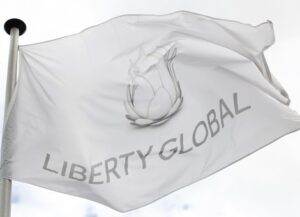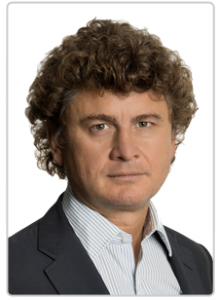
After more than 40 years of operation, DTVE is closing its doors and our website will no longer be updated daily. Thank you for all of your support.
Liberty Global tacking to ‘all-fibre’ future, says CFO
 Liberty Global is moving towards an “all-fibre” future in four of its five markets, with HFC still considered as a long-term option only in the Netherlands, according to CFO Charlie Bracken.
Liberty Global is moving towards an “all-fibre” future in four of its five markets, with HFC still considered as a long-term option only in the Netherlands, according to CFO Charlie Bracken.
In a wide-ranging interview at the Bank of America Securities C-Suite TMT Conference with BofA analyst David Wright, Bracken came close to agreeing that fibre would be the only real way for an operators such as Liberty Global to compete.
Regarding whether to build fibre or upgrade HFC, Bracken started the conversation by saying that network strategy varies country-by-country. In the UK, he said, Virgin Media O2 had gone “off balance sheet” to build fibre out in the half of the country not covered by its HFC network.
In the HFC zone, however, because the UK HFC network is already fibre-deep, he said it will be “relatively inexpensive” ultimately to “go all fibre”.
“In the UK we will have a fibre network. To the extent that you believe fibre is necessary, we will be all-fibre, for what it’s worth,” he said.
Bracken denied that Virgin Media O2 was converting customers to fibre too slowly. He said Liberty Global had full confidence in the commitments made by its UK management team led by Lutz Schüler.
He aslo said that growing VMO2’s fibre footprint inorganically was something that would be considered, given that there are a number of stressed fibre builders active in the market.
In Switzerland, Sunrise is renting fibre, and will rely on HFC only in rural areas where there is less competition, while Belgium’s Telenet has a fibre strategy through its JV with Fluvius. In Ireland, said Bracken, “we are all in” to build an ‘all-fibre’ network within “the next couple of years”.
“In four of our five markets, to the extent to which fibre is the only way to compete – as reasonable men could argue – we are making moves [in that direction],” he said.
Pointing out that “about half of our revenues aren’t fixed – they are mobile”, he added that, if fibre is “inevitable”, then “we are vulnerable only in one market”.
Dutch difference
The Netherlands, where an over-leveraged VodafoneZiggo operates an extensive HFC network, is that market.
“What is the right strategy? There are two fibre operators [in the Netherlands] with no customers. We are the market leader with 50% utilization. It is a strategic conundrum we and our partner are highly focused on,” he said.
Bracken said that VodafoneZiggo was “overleveraged” and the way out of this was to achieve growth.
“We are working an evaluating all that with our partner,” he said. VodafoneZiggo is the market leader in mobile and most customers take more than one product. “We need to find a pathway to deleverage, but we have a long time to do that,” he said.
Bracken said that in markets where operators relied on HFC, there is evidence that they do lose some market share, but only at the rate of about 6-7%. While cable networks are more expensive to run than fibre, this is “marginal”, he said.
Regarding pressure from pure-fibre players, he indicated that in many cases their business model did not make much sense. With higher interest rates, a business plan assuming 40-50% penetration is necessary to justify investing in fibre from scratch, and fibre builders were not achieving this, he said.
“The network position for us is not boom or bust. It is more subtle. We have the benefit of long-term shareholders and we are laying the foundations for future growth,” he said.



